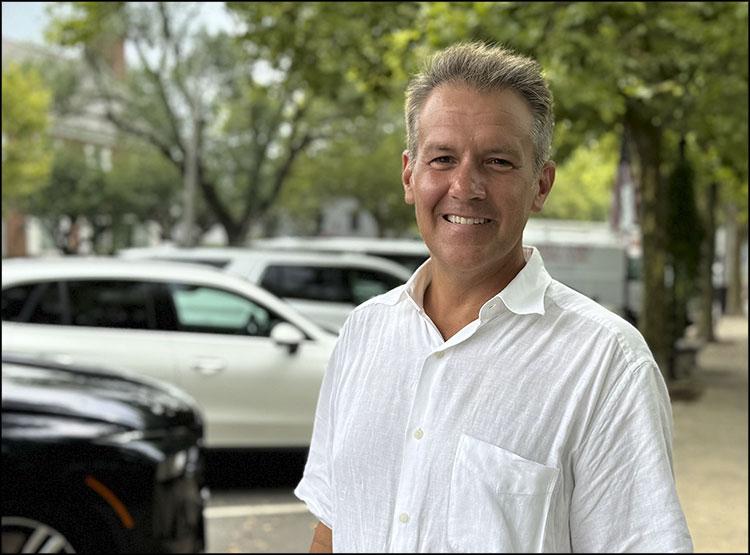“I’m a part-time judge, part-time attorney. But I’m also a citizen, and I think the highest office — as Justice Brandeis said — ‘The highest office is Citizen.’ ”
“It’s not president, and it’s not Justice of the Supreme Court, and it’s not Village Justice,” said Carl Irace, the Sag Harbor Village Court justice, who also maintains a private law practice in East Hampton. “The highest office in the country is Citizen, and I think my position gives me an opportunity to use my citizenship in a different way.”
In an interview last Thursday, Justice Irace discussed his appointment in late June to represent Cruz Eduardo Sanchez-Gutierrez, an alleged member of the street gang MS-13, in a death penalty-eligible federal racketeering case that includes charges of murder and conspiracy to murder. In all likelihood, that case should present quite a contrast to hours spent adjudicating parking violations and minor disputes every Tuesday, and alternate Wednesdays and Fridays, in the village court — though Mr. Irace said that contrast was “not as stark as you’d think.”
“One of the things that you get to see is how they’re all the same rights, no matter where you’re sitting,” he said.
After graduating from law school, Mr. Irace spent nine years as a prosecutor in the narcotics bureau of the Bronx district attorney’s office before moving out to the East End, where he became deputy town attorney of East Hampton. He opened his private practice in 2011, and was elected in 2023 to the Sag Harbor bench.
Because the position is part time, he is able to continue his work as a private attorney, which allows him to maintain simultaneous vantage points on the system.
“The judicial branch is different because the public comes to you. A person comes to the government to seek relief directly, or to say why the government was wrong, or overstepped. It’s the only branch where that happens from the bottom up instead of from the top down,” he explained. “And it’s one of the things that makes it so satisfying, in a way that I never expected.”
Mr. Irace well understands that he is many people’s first, “and often only,” direct contact with the government, and takes that responsibility very seriously. “We don’t need more people resenting the government,” he said, and the best way to combat that is to make the courtroom experience “as fulfilling and satisfying as possible,” to educate people about “the process” and “empower them to make their own decisions.”
Earlier this year, at the start of each day in court, Justice Irace began reading aloud a prepared statement providing a general explanation of his own role in the system, and of the rights of defendants. He takes additional time in every case, he said, to instruct those appearing before him on their rights as citizens — something he “really felt was missing” in town and village court proceedings.
“How they get treated is going to shape how they see government,” he said, “and I think it’s so important to make the most of that opportunity. And I spent a lot of time trying to figure out how to do that best, and I’m going to continue to think about that. There’s so much you can do. I’m always looking to figure out what more I can do.”
Mr. Irace was appointed to represent Mr. Sanchez-Gutierrez as a member of the Criminal Justice Act Panel for the Eastern District of New York, a group of attorneys approved by the district court to represent indigent defendants in federal criminal cases which government defense lawyers cannot take on due to conflicts.
The case is still in its early stages, and could go on for years. At this point, he explained, it is “really kind of two cases” — one about the actual conduct alleged, and the other about the sentencing, and whether prosecutors will pursue the death penalty should there be a conviction on the charge. He will be working with a team of mitigation specialists and “learned counsel,” assigned attorneys with relevant experience to prepare an application to the attorney general opposing the prosecution’s call for the death penalty.
“The stakes are very high. But one of the things that’s satisfying about these cases is there’s such a well-developed body of law,” Mr. Irace said. The goal in a case like this is not necessarily dismissal, he explained, but rather to ensure that the defendant’s rights are protected, and that the sentence is appropriate to whatever crimes can be proven in court.
“It’s a serious case. I’m not going to say it’s pretty. But there’s always something we can do to help.”


